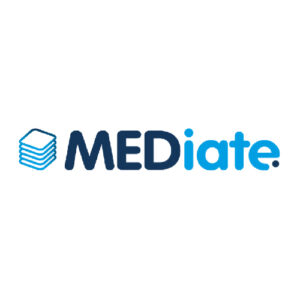
SRI2MARKET
Paving the way for the adoption of the SRI into national regulation and market
The SRI2MARKET project will improve the knowledge and capabilities of six EU countries (Austria, Croatia, Cyprus, France, Portugal, Spain) with regards to the introduction of the Smart Readiness Indicator (SRI) in their national regulation and market. To this end, the project differentiates its objective as follows:
1. EU countries with official test phases launched: SRI2MARKET will both support – through its disseminated messages, use cases and tools – and learn from the national testing phases. In this case, the main objective of the project is to be complementary to the planned national activities, and showcase the successes and obstacles of the testing phases so that other Member States can learn and plan accordingly the rollout of the SRI in their markets.
2. EU countries with active interest in the SRI. SRI2MARKET will support these Member States on moving forward with designing and implementing a testing phase and/or an SRI rollout when they choose to. The main objective of the project is to disseminate lessons learned from the testing phase of the Member States in the previous group, and act as a catalyst for accelerating the relevant policy decisions in the Member States of this group by initiating stakeholder dialogues and making a series of tools and use cases available.
3. EU countries where SRI2MARKET can lay the groundwork for policy makers to decide how to proceed with the SRI. The main goal of the project is to engage national policy and market stakeholders so that to create interest in the SRI and the opportunities that may emerge from it.
A multilingual web-based platform will be developed, with the ability to be easily customised to national languages, national adaptations of the SRI calculation and relevant technologies.
Motivation & Impact
Role of R2M
Motivation & Impact
The Smart Readiness Indicator (SRI) is a common EU methodology that rates the smart readiness of buildings (or building units) for their capability to perform three key functionalities: (a) optimise energy efficiency and overall in-use performance, (b) adapt their operation to the needs of the occupants, and (c) adapt their operation according to signals from the grid (to provide demand response services). The SRI was introduced in the 2018 revision of the European Energy Performance of Buildings Directive (EPBD) as a way to emphasize the role of smart building technologies – such as technologies for building automation and monitoring of equipment operation – in improving the energy efficiency of buildings and their capability to be active components of the future EU energy system.
SRI2MARKET facilitates the diffusion of innovative technologies and solutions for energy efficiency in buildings by promoting the concept of the SRI instrument. In effect, the SRI rates the controllability of a building, i.e. the extent to which the technical capabilities that are installed in a building can improve energy efficiency and operational flexibility if utilized correctly. The end result is that the adoption of the SRI can be expected to motivate building owners and facility managers to evaluate: (a) the capabilities that are currently installed in their buildings, (b) the way these capabilities are utilized, and (c) whether there is a business case for upgrading them.
Role of R2M
R2M has to main roles:
1) R2M leads Sustainability, Replication and Exploitation activities, with the following aims:
– To identify the key market actors to engage in national SRI Communities and provide them with a clear picture of the business opportunities connected to the SRI
– To create and diffuse capacity building material to support public authorities on implementing the project results
– To guide all partners in the management of the exploitable results in their path towards the market, and identifying actions and business cases to ensure their exploitation strategy beyond the project lifetime.
2) R2M ensures the link between SRI2MARKET and the French ecosystem. R2M promotes in France the tools and actions specifically targeting industry actors (manufacturers of smart-building technologies and real estate actors) to demonstrate how the SRI can increase the market up-take of smart building technologies. R2M will translate in French and adapt to the French specificaties the SRI2MARKET online platform.












































